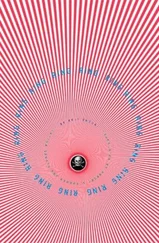Koji Suzuki - Dark Water
Здесь есть возможность читать онлайн «Koji Suzuki - Dark Water» — ознакомительный отрывок электронной книги совершенно бесплатно, а после прочтения отрывка купить полную версию. В некоторых случаях можно слушать аудио, скачать через торрент в формате fb2 и присутствует краткое содержание. Год выпуска: 2006, ISBN: 2006, Издательство: Vertical, Жанр: Ужасы и Мистика, на английском языке. Описание произведения, (предисловие) а так же отзывы посетителей доступны на портале библиотеки ЛибКат.
- Название:Dark Water
- Автор:
- Издательство:Vertical
- Жанр:
- Год:2006
- ISBN:9781932234220
- Рейтинг книги:3 / 5. Голосов: 1
-
Избранное:Добавить в избранное
- Отзывы:
-
Ваша оценка:
- 60
- 1
- 2
- 3
- 4
- 5
Dark Water: краткое содержание, описание и аннотация
Предлагаем к чтению аннотацию, описание, краткое содержание или предисловие (зависит от того, что написал сам автор книги «Dark Water»). Если вы не нашли необходимую информацию о книге — напишите в комментариях, мы постараемся отыскать её.
, which spawned the hit film and sequels. The first story in this collection has been adapted to film (
, Walter Salles), and another, “
” is currently in production with Dimension Films.
Naoki Prize Nominee (1996) Izumi Kyoka Prize Nominee (1996)
Dark Water — читать онлайн ознакомительный отрывок
Ниже представлен текст книги, разбитый по страницам. Система сохранения места последней прочитанной страницы, позволяет с удобством читать онлайн бесплатно книгу «Dark Water», без необходимости каждый раз заново искать на чём Вы остановились. Поставьте закладку, и сможете в любой момент перейти на страницу, на которой закончили чтение.
Интервал:
Закладка:
Mother and daughter proceeded to the fourth floor elevator hall with a box of matches, a candle, and a plastic bag containing the fireworks. They pressed the up button and waited for the elevator, which arrived with a painful groan.
When they got in, Ikuko said, imitating an elevator attendant: “Welcome, madam. Which floor do you require?”
Take me up to the seventh, please,” Yoshimi played along.
“Very well, madam.”
With a slight bow of the head, Ikuko turned to press the button for the seventh floor, only to find that she couldn’t reach it. Yoshimi giggled at her daughter’s plight; on tiptoe and with her arm outstretched as far as it would go, the best she could manage with her straining index finger was the fourth floor. By this time, the elevator doors were starting to close automatically.
“Too bad,” Yoshimi said, and hit the button for the seventh floor.
“Huh!” Ikuko sulked.
The grainy feel of the elevator button lingered with Yoshimi, and she unconsciously wiped her forefinger against her linen skirt. Every time she used the elevator, the black, blistered surfaces of the floor buttons made her feel gloomy. Someone had used a cigarette to scorch the buttons for the first through the seventh floors. Although the NO SMOKING sign right next to them remained unscathed, none of the originally white buttons had escaped. Whenever Yoshimi wondered what could motivate such behaviour, she felt chilly. It probably had something to do with repressed anger against society — and who could be sure the frustration wouldn’t be vented on people someday? What terrified her most was that this man (she’d somehow decided it was a man) used the elevator of the very apartment building they lived in. As a single mother, worried about the worst, she couldn’t shake off her anxiety. Still, she’d had enough of men and didn’t ever want to live with one again.
During the two years she’d lived with her husband, she’d never once felt protected. When they separated four and a half years ago, and when a year later the divorce became official, she felt relieved, frankly. She just couldn’t adapt herself to living with a man. Perhaps it was a Matsubara family tradition. Both her grandmother and her mother had followed the same path, and for the third generation now, theirs was a two-person family of just mother and daughter. Ikuko, who held Yoshimi’s hand now, would in the years ahead likely get married and become a mother, but Yoshimi somehow knew the marriage wouldn’t last.
As the elevator stopped and the doors slid open, Tokyo Bay spread out in front of them. They stepped out into the corridor and saw four apartments to the left and four to the right of the elevator, but none of them showed any sign of occupancy. The fourteen-year-old apartment building suffered from the after-effects of the burst economic bubble.
A few years earlier, when, out of the blue, a project to construct a high-rise complex in this area had come up, this apartment building and other mixed-occupancy buildings in the neighbourhood had been subjected to a bout of land speculation. But the neighbours resisted being chased out, and while the coordinators fumbled, the bubble burst and the construction project disappeared into thin air. About half of the forty-eight apartment units in the building had been purchased, but could not easily be resold; twenty were eventually put up for rent at considerably less than market value. Yoshimi, who caught wind of this from a friend in the real estate business, had always dreamed of having a view of the sea, so she grabbed the opportunity, leaving the rented house in Musashino she’d lived in for so long, and transplanting herself onto the completely different environment of reclaimed land. She simply couldn’t abide staying in a house that still reeked of her husband, and also, now that her mother was dead, childcare-friendly Minato Ward seemed more convenient for a single mother and her daughter. The publishing company Yoshimi worked for was in nearby Shimbashi, and the best thing about it all was that she’d be able to devote time saved on the commute to her daughter.
Upon moving in, however, she found that a lot of the owners had purchased their units as an investment. They had never moved in, and by now most of the units had been transformed into offices. Inevitably, the building almost emptied out at night. Some five or six single people lived there as tenants, while the only family in the entire building lived on the fourth floor — in Yoshimi’s unit, number 405. The super had told Yoshimi that a family with a daughter the same age as Ikuko used to live on the second floor, but had moved away the year before due to some tragedy. From then on, the apartment building had seen no children until Yoshimi and Ikuko moved in three months ago.
Yoshimi surveyed the deserted seventh floor for a stairway leading to the rooftop. There it was, immediately to the right of the elevator; the roof would be only a floor above. Holding her daughter’s hand, Yoshimi climbed up the steep concrete stairs. Next to the elevator engine room, there stood a heavy-looking iron door. It didn’t appear to be locked, and when Yoshimi tried turning the knob and giving it a push, it opened with surprising ease.
It wasn’t spacious enough to be called a rooftop. It was a cramped place measuring no larger than forty square feet, fenced in with a waist-high handrail, with concrete pillars rising up from the four corners. Yoshimi would have to keep her eyes on her daughter if she approached the edge — the weight of your own head seemed enough to pull you over if you dared peer down.
In the gentle breezeless dusk, on this pier into the air, Yoshimi and Ikuko lit their fireworks. The red jets stood out in the deepening darkness. Below them to the right, the dark waters of the canal flickered with light reflected from the streetlamps, and opposite was the nearly completed Rainbow Bridge to link Shibaura with Daiba. The top of the suspension bridge, outlined with red signal lights, sparkled like real fireworks.
Yoshimi took in the view from on high, and Ikuko held aloft her little sparklers and cried with delight. It was when the score of sparklers had all turned into charred cinders, and the two prepared to go back down, that they discovered it, both at the very same moment. They had had their backs against the wall of the penthouse, which housed the stairwell and atop which sat the building’s water tank; but in the small drain that ran at the bottom of this wall was what looked like a handbag. It didn’t look like it’d been dropped, but rather, placed there on purpose. After all, who’d come to a place like this and lose her bag?
It was Ikuko who picked it up. No sooner had she let out a faint cry of surprise than she’d dashed over to it and grabbed it. “It’s Kitty,” she noted.
It was hard to see in the dark, but against the glow of the street lamps from down below, the Kitty motif was indeed visible on the cheap vinyl bag. The bright red vinyl surface squished and changed shape in her hands.
“Give it to me,” scolded Yoshimi. She reached for Ikuko, who was trying to unzip the bag to see what was inside, and succeeded in taking the bag away from her.
Yoshimi’s mother, when she was still healthy, used to take Ikuko on walks in the hills around Musashino, often to come home with some discarded item. It was only natural for a woman of Yoshimi’s mother’s generation to feel that modern folks threw things out too soon. That was that. What Yoshimi couldn’t stand was the thought of her own daughter scavenging through garbage, and she had frequently gotten into arguments with her mother about it. In bringing up Ikuko, Yoshimi never tired of hammering into her a simple rule about picking things up. Whatever it was, you didn’t take it if it didn’t belong to you. Every time Yoshimi said this with a solemn look, her mother would react with a grimace: “Now don’t be such a stiff
Читать дальшеИнтервал:
Закладка:
Похожие книги на «Dark Water»
Представляем Вашему вниманию похожие книги на «Dark Water» списком для выбора. Мы отобрали схожую по названию и смыслу литературу в надежде предоставить читателям больше вариантов отыскать новые, интересные, ещё непрочитанные произведения.
Обсуждение, отзывы о книге «Dark Water» и просто собственные мнения читателей. Оставьте ваши комментарии, напишите, что Вы думаете о произведении, его смысле или главных героях. Укажите что конкретно понравилось, а что нет, и почему Вы так считаете.












